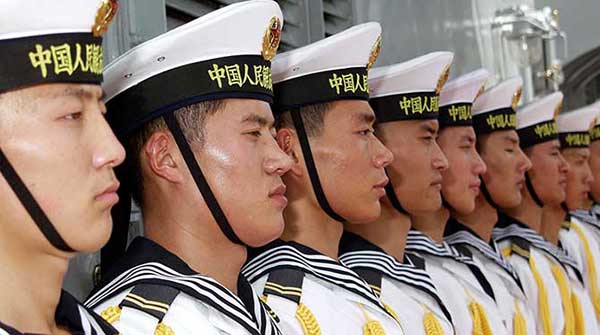 According to recent news reports, a delegation of eight Canadian MPs and senators from the Canada-Taiwan Friendship Group and a parliamentary trade committee are planning to visit Taiwan as early as October.
According to recent news reports, a delegation of eight Canadian MPs and senators from the Canada-Taiwan Friendship Group and a parliamentary trade committee are planning to visit Taiwan as early as October.
Although such visits are not unusual, this time around the announcement has attracted more attention than usual. This is largely due to China’s disproportionate reaction to a brief recent visit by U.S. House Speaker Nancy Pelosi, which “compelled” Beijing to launch a series of large-scale live-fire military exercises around Taiwan.
This context has not escaped Ottawa’s attention. After Liberal MP Judy Sgro, who chairs the Canada-Taiwan Friendship Group, revealed plans for the visit to Taiwan, Prime Minister Justin Trudeau stated that the potential consequences of such a visit should be taken into account. “We will ensure that the parliamentarians making the decision to travel or not,” he said, “will be done with all the reflections of the consequences and the impacts of it.”
To his credit, Trudeau emphasized that members of parliament make their own decisions about the travel they undertake, in the same way that the White House cannot tell U.S. members of Congress where and when they can travel abroad. Foreign Affairs Minister Mélanie Joly has also rightly emphasized the independence of parliamentary associations and friendship groups.
Also to his credit, Trudeau described Beijing’s reaction to such visits – particularly its highly destabilizing manoeuvres and economic sanctions over the Pelosi visit – as both “belligerent” and “troubling.”
Yet, talk about potential “consequences” signals that Beijing, through its belligerence, has succeeded in changing how our government – and MPs – calculate our engagement with a fellow democracy. Take, for example, remarks by Randy Hoback, a Conservative MP and committee vice-chair who has visited Taiwan before as part of the friendship group. “There’s no intent on my part to antagonize China,” he said, adding that he would consult with Global Affairs Canada before deciding whether to embark on the trip or not.
Worryingly, his statement suggests that our MPs are being conditioned by Beijing. Why would a perfectly legitimate visit under Canada’s longstanding “one China” policy, and similar to those that have occurred without trouble in the past, now be potentially “antagonizing” to China?
Ottawa’s policy with regards to Taiwan and China is agnostic (it “takes note” of Beijing’s contention that there is only “one China” of which Taiwan is an indivisible part) and has long promoted trade, cultural and other ties with the democratic island-nation, of which legislative exchanges have been a perennial feature.
We are now at risk of letting Beijing’s excessive belligerence dictate the nature and extent of our relationship with Taiwan, to chip away at practices that had previously been regarded as perfectly acceptable. In other words, Beijing’s escalatory behaviour has assaulted the very “status quo” that buttresses Canada’s policy vis-à-vis Taiwan. If, through risk avoidance, we give Beijing what it wants and suspend these interactions with Taiwan, we can be certain that the Chinese authorities will do even more to constrain our room to manoeuvre.
Beijing’s highly disruptive response to the Pelosi visit upended the “status quo.” It is in the interest of all – Canada included – that some balance be returned to the situation. Above all, this includes actions on our part that reaffirm our commitment to the “status quo,” a commitment that includes the resumption of legislative visits (which other countries, such as the UK, Germany and others are currently planning), as well as safe passage transits in the Taiwan Strait. Indeed, Beijing is trying to change the rules in the Taiwan Strait, and we need to signal our determination not to be deterred in supporting democracies in their hour of need. Conversely, if we send signals of weakness (and unfortunately, the public remarks by both PM Trudeau and MP Hoback can be interpreted as such), we will only give Beijing further ammunition to scare us into passivity.
Most assuredly, the point is not for Canada to go out of its way to alienate Beijing or to engage in activities that will only end up hurting Canada’s interests and, possibly, those of Taiwan. However, we should not countenance attempts by China to redefine what has been, and still is, a legitimate expression of Canada’s commitment to the rule of law and support for democracy. Just as unacceptable would be to let fear and avoidance determine our policy. The visit to Taiwan should take place. And when it does, the sky will not fall.
Michael Cole is a Taipei-based senior fellow with the Macdonald-Laurier Institute and the Global Taiwan Institute and senior advisor on Countering Foreign Authoritarian Influence (CFAI) with the International Republican Institute in Washington, D.C. He is a former intelligence officer with the Canadian Security Intelligence Service.
For interview requests, click here.
The opinions expressed by our columnists and contributors are theirs alone and do not inherently or expressly reflect the views of our publication.
© Troy Media
Troy Media is an editorial content provider to media outlets and its own hosted community news outlets across Canada.


